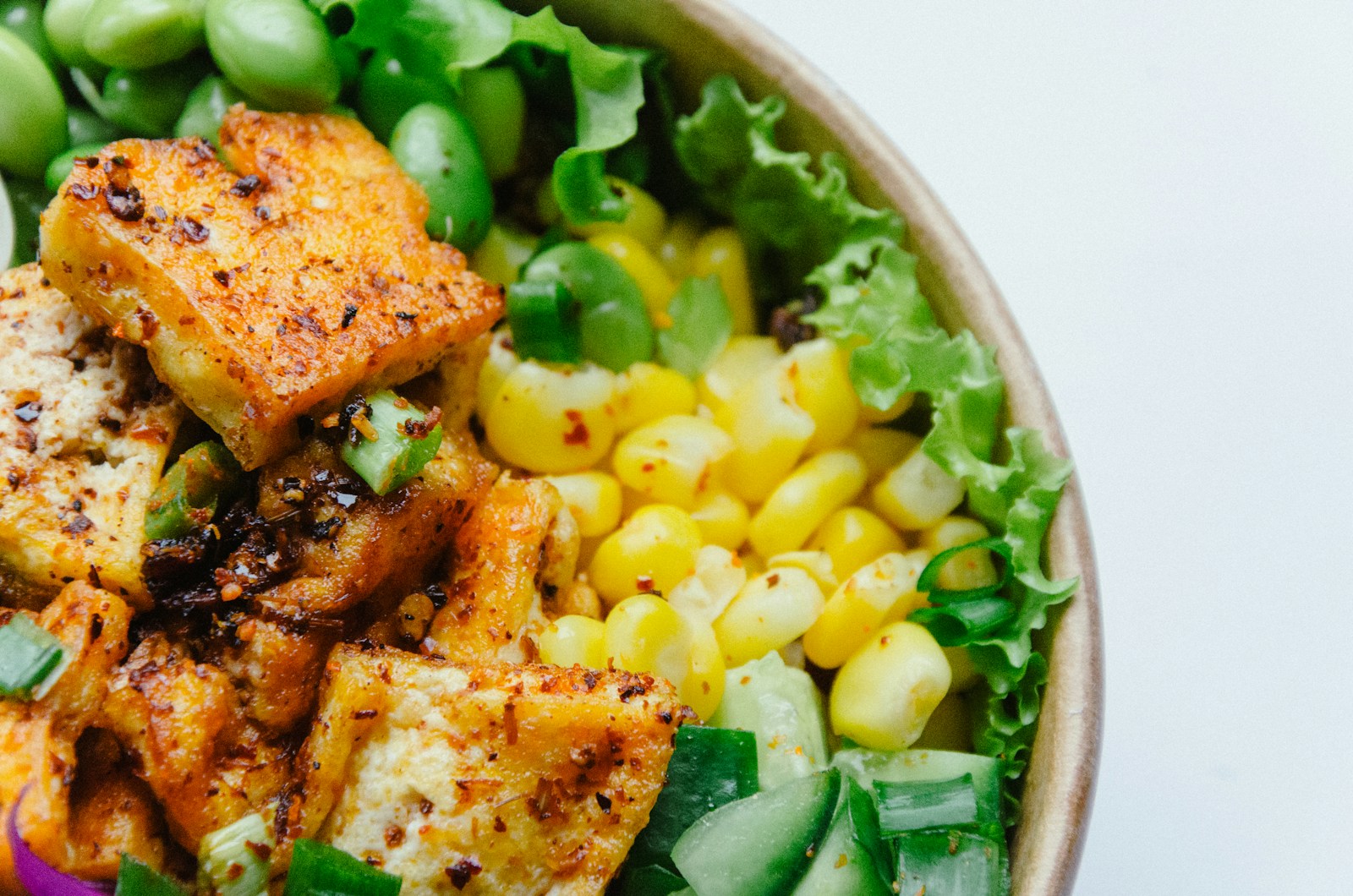
豆腐
dòufu

tofu
Tofu is a popular food product made from soybeans, used in many Chinese dishes.
Example sentences using: 豆腐
弟弟不喜欢吃豆腐。
Dìdì bù xǐhuan chī dòufu.

My younger brother doesn't like eating tofu.
This sentence tells the listener that the speaker's younger brother does not enjoy eating tofu.
我妈妈做豆腐很好吃。
Wǒ māmā zuò dòufu hěn hào chī.

My mom makes very delicious tofu.
This sentence means that the speaker's mother is skilled at cooking tofu, implying that the speaker enjoys their mother's tofu dishes.
今晚我们家吃豆腐。
Jīnwǎn wǒmen jiā chī dòufu.

We are eating tofu at our home tonight.
This sentence tells the listener that the speaker's family will be eating tofu for dinner this evening.
这是我爸爸的豆腐。
Zhè shì wǒ bàba de dòufu.

This is my dad's tofu.
This sentence suggests that the tofu the speaker is referring to belongs to their father. Could be used for sharing or offering food.
我和姐姐去超市买豆腐。
Wǒ hé jiějie qù chāoshì mǎi dòufu.

My sister and I went to the supermarket to buy tofu.
This sentence tells the listener that the speaker and their sister made a trip to the supermarket specifically to purchase tofu.
你家有豆腐吗?
Nǐ jiā yǒu dòufu ma?

Do you have tofu at home?
This sentence is asking the listener whether there is tofu at their home. It's often used when discussing about food ingredients.
我家狗狗喜欢吃豆腐。
Wǒ jiā gǒugǒu xǐhuan chī dòufu.

My family dog likes to eat tofu.
This sentence tells that the speaker's family pet, a dog, enjoys eating tofu.
我们家今天晚饭有豆腐。
Wǒmen jiā jīntiān wǎnfàn yǒu dòufu.

We have tofu for dinner at our home today.
This sentence tells the listener that the speaker's family is having tofu for dinner today.
爷爷最喜欢的食物是豆腐。
Yéyé zuì xǐhuan de shíwù shì dòufu.

Grandpa's favorite food is tofu.
This sentence tells the listener that the listener's grandfather's favorite food is tofu.
妹妹正在切豆腐。
Mèimei zhèngzài qiē dòufu.

My younger sister is cutting tofu.
This sentence implies that the speaker's younger sister is currently in the process of cutting tofu, likely for cooking.